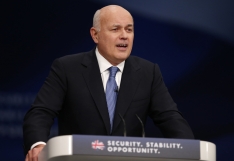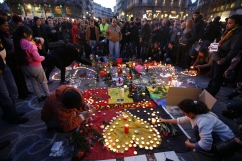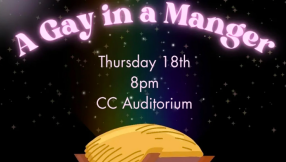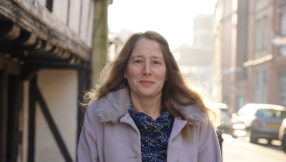David Cameron is at his best in a crisis.
Stern but calm, he manages to offer sympathy to victims while reassuring the rest of us it will be OK and encouraging everyone to stay united.
At an Easter reception for Christians in Downing Street on Wednesday, the prime minister spoke from the heart. In the immediate aftermath to terrorist attacks in Brussels he urged Christians to join with Muslims in the battle against extremism.
"This is the great fight that we have to join," said Cameron. "Our brothers and sisters who are Muslims, they want our assistance. We should be reaching out and wanting to help them battle against extremism. We have to build stronger and more resilient communities. We have to make sure that people who are drifting into an extremist mindset are yanked back."
He continued: "We have to help fortify one another for the extraordinary effort in defeating extremism. We are now well into the second decade of an extremist organisation poisoning young people's minds. Some people have hijacked a part of Islam and this is a great fight we have to join. Muslims need our help".
As well as urging a united faith response, Cameron reaffirmed Britain as a Christian nation. He suggested this isn't something to be embarrassed about or a cause of "doing down other faiths".
"In the end our values are far stronger, far more appealing than anything they [extremists] have to offer," he said. "It's not weak because we question our own faith. It's immensely strong. We are rational rather than extremist, but don't mistake that for lack of passion."
Cameron argued the status of Britain as a Christian country "actually helps others of a different faith to feel there's a space for faith".
This is how a statesman responds in a crisis. For an example of how not to do it, Donald Trump's interview on Good Morning Britain is perfect. His rambling, unspecific and aggressive rant offered neither unity nor reassurance.
"I would hit ISIS so hard you wouldn't believe it and I'd get the people over there to put up their soldiers because it's about time somebody did it but I'd have such back up in terms of air power and air strikes et cetera and you've got to take them out and you've got to take them out harshly and you've got to take them out fast and you have no choice."
In contrast to Cameron, Trump offers no reconciliation, no call to unity and little reassurance. When asked to clarify if he was anti-Muslim he said: "I'm not anti anything, I'm just common sense. I'm just saying it how it is."
What Trump does with such success is appeal to what many want to hear. He offers strength, anger and retaliation. But crucially that is not what we need to hear. We need to be reminded to love. We need to be reminded to stand together and not turn on each other. For all his faults, Cameron offers that.
However, I have one gripe with his remarks.

Mr Cameron defended Britain's status as a Christian nation and said that helps create a "space for faith". On this he is quite right. As we can clearly see in France, an aggressively secular society which pushes religion out, only leads to more religious violence, not less.
A pluralistic society that encourages freedom of religion is stronger and more stable than one which tries to restrict or limit religion.
All well and good so far. My gripe is that some the government's counter-extremism policies undermine precisely what Cameron says makes us strong.
The Extremism Disruption Orders (EDOs) aim to target non-violent extremism as well as violent extremism. This may be well-intentioned but the definition of non-violent extremism is so vague they pose a threat to free speech and belief. Such is the concern that the National Secular Society, the gay-rights activist Peter Tatchell and the conservative Christian lobby group the Christian Institute have laid down arms and joined forces to oppose the suggestions.
The Department for Education also has plans to allow Ofsted to inspect out-of-school settings such as churches, youth groups and scout clubs.
These are precisely the sort of policies that undermine, rather than encourage, the very faith groups Mr Cameron wants to help "build stronger and more resilient communities".
It makes me wonder whether the government realises the damage it risks doing to religious communities. The prrime minister is correct - allowing space for faith to flourish and build communities is exactly the way to combat extremism. A strong pluralistic free society is what we need. Yet his government's policies send a different message. They suggest religious people are to be treated with suspicion and caution. They give the impression that any form of enthusiastic faith must be inspected to ensure it isn't "extremist".
Jesus' message was extreme. It was also entirely peaceful and loving. You cannot in one breath encourage religion and in the same breath target non-violent extremism.















